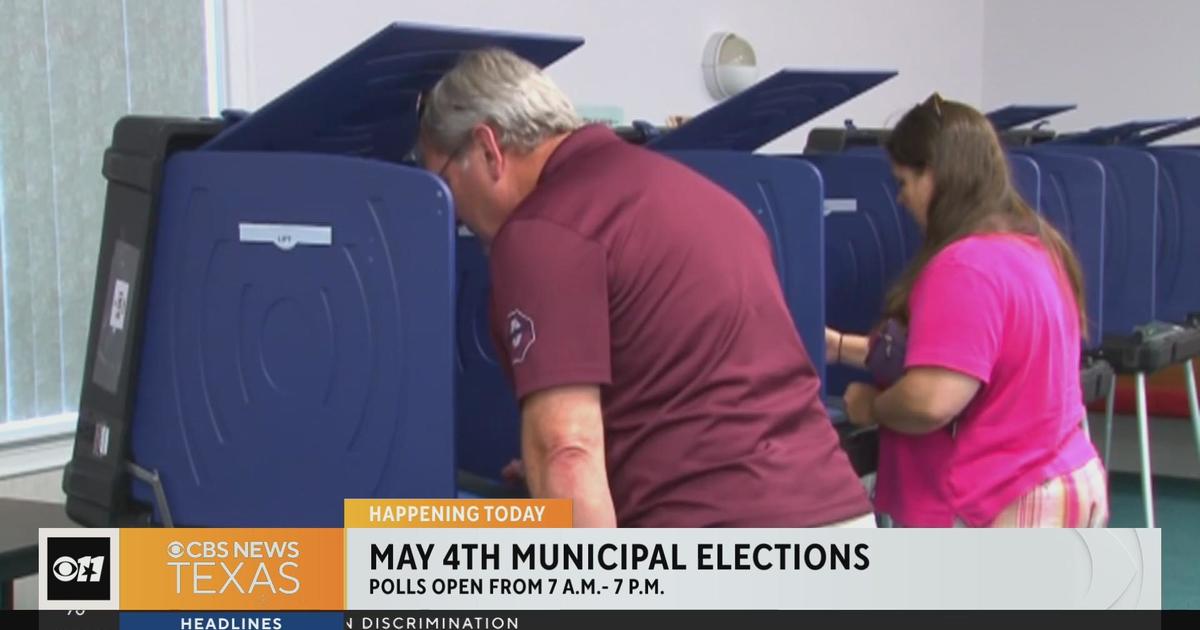Iowa
GOP lawmakers abandon Iowa's civil rights legacy

Ralph Rosenberg served in the Iowa legislature from 1981 through 1994 and was director of the Iowa Civil Rights Commission from 2003 through 2010.
The Iowa legislature turned its back on our state’s proud civil rights legacy with last week’s passage of Senate File 2385, which neuters the effectiveness of the civil and human rights agencies and eliminates specific commissions dedicated to marginalized populations.
This combination undercuts Iowa values of respect and protecting the dignity of all Iowans. The bill compounds the removal of legal authority to proactively act on civil and human rights violations, by broadcasting a national message about how the Iowa government devalues diversity in religion, race, ethnic background, gender, or national identity. (Other pending Republican legislation reinforces this message, by calling for K-12 schools to teach history from a Western Civilization perspective, or limiting diversity, equity, and inclusion programming on college campuses.)
NEUTERING THE IOWA CIVIL RIGHTS COMMISSION
SF 2385 closely tracks Governor Kim Reynolds’ proposed bill on boards and commissions. Senate Republicans largely copied the governor’s ideas for their bill. Key provisions of the legislation strip the Iowa Civil Rights Commission of independent policy advice and statutory authority to:
- investigate potential discrimination;
- conduct and release findings of independent research without prior approval of the director and governor; and
- examine civil rights violations based on whistleblower evidence or patterns and practices.
SF 2385 removes responsibility and duties from the commissioners and concentrates power with one person: the governor’s appointed director of a renamed Office of Civil Rights.
The bill restricts the commission’s ability to follow up on evidence of discriminatory patterns or practices or to proactively investigate discrimination and to engage in preventative efforts, such as testing for discriminatory practices. Those may include allegations of discrimination in housing based on whether an Iowan has children or a family, failure to accommodate a disability, or steering potential housing renters and buyers of a certain race towards certain neighborhoods.
Commissioners will be prohibited, or effectively hamstrung, from lobbying or providing information to policymakers unless they receive approval from the governor’s office.
Here are a few examples illustrating how the commission’s work will be affected if it cannot independently investigate or initiate complaints against alleged violators of civil rights.
In the past, if the commission learned that people with disabilities (such as veterans with PTSD needing companion animals) were being denied accommodations, staff could proactively “test” landlords to determine patterns or existence of discrimination. That practice allowed the commission to support the actions of staff and the director, to follow up on a whistleblower informal complaint. SF 2385 removes existing, clear-cut authority to use time-honored efforts like testing to uncover systemic discrimination practices.
Commissioners understood Iowans in the workplace or renting can be intimidated from filing cases. Even with evidence of patterns or trends, the commission and staff will face legal barriers to initiate testing or other investigations, like people being evicted because they had a service animal or because of their physical disability, or women in a particular industry or workforce being harassed.
The bill erases past efforts to educate the public and prevent discrimination. Past commissioners and staff helped achieve annual educational outreach efforts, often exceeding 200 per year. Today’s agency’s performance plan has a goal of 2 per month. Today’s performance plan for the Iowa Civil Rights Commission has a goal of two per month.
Other provisions of SF 2385 eliminate existing human rights commissions, consolidating all into one Human Rights Board with twelve members and just seven voting members. That will reduce representation and voices for Iowans with disabilities, or who are part of marginalized racial and ethnic groups. (Earlier this year, the House State Government Committee had crafted a different bill, which would have spared dozens of state boards and commissions, including the community-specific ones.)
The restructured Civil Rights Commission and Human Rights Board will be unable to offer rapid and independent insight into bills that positively or negatively impact marginalized groups. Current members of the Iowa Civil Rights Commission voted unanimously in March to oppose these changes to the commission and the community-specific bodies.
HOUSE DEBATE REVEALED BIPARTISAN OPPOSITION, CONCERNS
Advocates of SF 2385 portrayed the bill as a way to reduce bureaucracy. During the Iowa Senate debate on April 10, State Senator Chris Cournoyer asserted, “This bill is about maximizing meaningful public participation in the boards and commissions process, and it increases state government accountability and efficiency by eliminating unnecessary bureaucracy.”
While floor managing the bill in the Iowa House on April 16, State Representative Jane Bloomingdale touted the idea of concentrating accountability with a single director. “We’re not taking away any civil rights,” Bloomingdale said. “We are putting a director in charge of an agency, just like every other department. The director is in charge, and the director is accountable for her department. She’s appointed by the governor, confirmed by the Senate.”
Bloomingdale added, “The commission will stay in place. They are also appointed by the governor and confirmed by the Senate.” She did not acknowledge how the bill would undermine the 60-year-old values and purpose of the Iowa Civil Rights Act, which remains just as important in 2024.
Democratic State Representative Ross Wilburn offered an amendment that would strike the section relating to the Iowa Civil Rights Commission from SF 2385. He walked through some of the ways the bill would downgrade the commission’s authority. This video shows his opening remarks, comments from Bloomingdale, and Wilburn’s rebuttal.
Bloomingdale claimed, “The commission will continue to hear cases and make decisions as they do right now. The director of the agency will now be in charge of her department and the 27 full-time employees, instead of a volunteer board. But the volunteer board will continue to hear cases and make decisions on cases, just as they do now.”
She was apparently referring to contested case hearings. But only a small number of the 1,700 to 2,000 civil rights complaints filed in Iowa each year reach the hearing stage in front of the commission. The remainder of the cases are settled, mediated, dismissed, or issued the right to sue in court.
Wilburn replied that “Words matter,” before reading several passages in SF 2385 that remove the commission’s authority.
The bill’s proponents did not mention that the new Office of Civil Rights would inevitably face pressure to avoid claims against other state agencies for employment, public accommodation, and other areas. There was no consideration of the need for a law enforcement agency to maintain independence.
Concentrating power in the hands of one individual, closely situated to the governor or governor’s staff, fractures the commission’s nearly 60-year history. The Des Moines Register highlighted that problem in its April 18 editorial: “Don’t hand over the authority of the Iowa Civil Rights Commission to Kim Reynolds.”
House members rejected Wilburn’s amendment by 58 votes to 38, with four Republicans (Mark Cisneros, Megan Jones, Charley Thomson, and Hans Wilz) joining Democrats to support the proposal.
Democratic State Representative Jerome Amos Jr. offered another amendment that would restore the state’s current community-specific commissions on the status of African Americans, Latino affairs, women, Asian and Pacific Islanders, Native Americans, and people with disabilities. He warned that if the bill was left unchanged,
What it’s going to do is, it’s going to water down the voices of individuals that live in this state. Originally, you had a commission report that actually was made up of those different ethnic groups and they actually had a voice, a collective voice. But what this is going to do, it is going to take away that voice.
The new Human Rights Board might include one individual from each marginalized group. “It’s just not going to work. It will not work,” Amos Jr. said.
House members rejected this amendment by 54 votes to 42, with eight Republicans (Eddie Andrews, Mark Cisneros, Chad Ingels, Megan Jones, Brad Sherman, Ray Sorensen, Charley Thomson, and Mike Vondran) joining Democrats to support it.
Several Democrats remarked on the rushed process for considering a 243-page amendment reflecting negotiations between House and Senate Republicans. Bloomingdale introduced that amendment hours before the House debated and voted on the measure. The lack of adequate notice left little time to analyze a significant bill. During the floor debate, State Representative Amy Nielsen, the ranking Democrat on the House State Government Committee, reminded Iowans of the majority’s failure to acknowledge opposing viewpoints and refusal to consider concerns from opponents.
Similar to how the bill forced out state government representation of Iowans who are members of marginalized groups, the debate muted citizen input and ignored offers by the minority party to collaborate. State Representative Adam Zabner characterized the bill as “a power grab that took away the rights of Iowans and the voices of Iowans in the process of government.”
State Representative Charley Thomson was the only Republican to speak against SF 2385 during the floor debate.
Thomson explained that he generally disagreed with the approach of the bill: “I think government is better when lots of people are participating in it.” He highlighted how the bill would change the Iowa Civil Rights Commission, noting that civil rights statutes “were very carefully constructed, the result of many years of debate and compromise, and I think it is disappointing, to say the least, that we are dealing with it in a rather hurried manner without the consent of, or the consensus of many of the people involved.”
The House approved final passage of SF 2385 on April 16 by 54 votes to 42, with all Democrats present and Republicans Eddie Andrews, Steven Bradley, Mark Cisneros, Zach Dieken, Tom Jeneary, Megan Jones, Brad Sherman, and Charley Thomson voting no.
The Senate approved the final version of the boards and commission bill on a party-line 32 to 14 vote on April 19.
BETRAYING OUR STATE’S HISTORY ON CIVIL RIGHTS
Since its inception, the Iowa Civil Rights Commission has been a stalwart defender against discrimination. From Edna Griffin’s stand in 1948 (actually a sit-in six years before Rosa Parks) to recent efforts to enforce disability accommodation laws and safeguard LGBTQ+ rights, the commission has been pivotal in effecting positive change.
Iowa’s legacy is tarnished by this bill. The Iowa legislature and governor are abandoning this history. The State Historical Society of Iowa has done the homework on our history in the publication Iowa: Leader in Civil Rights and Equality. The subtitle of that work is, “How does Iowa demonstrate, ‘Our liberties we prize, and our rights we will maintain?’”
For generations, our state has been a leader in making progress on civil and human rights–enacting laws and advocating for policies to combat discrimination and champion equality. Every day, Iowa becomes more diverse and more diverse than any other day in its history. The proposed changes effectively muffle the voices and concerns of fast-growing groups in Iowa, including the least represented groups in society. Nearly one in five Iowans have disabilities or are members of marginalized racial or ethnic groups.
Sixty years ago, Rev. Dr. Martin Luther King, Jr. was quoted as saying, “I had the audacity to believe that people everywhere could have three meals a day, education and culture for their minds, and dignity, equality, and freedom for their spirits.” Dr. King’s vision is stalled by this legislation. When the governor signs this bill, she will leave her legacy on civil and human rights.
Top photo of Ralph Rosenberg published with permission.

Iowa
A climate change book club needed hope. So, it decided to plant Iowa’s first mini-forest.

A book club that reads about sustainability, climate change and environmental justice got tired of feeling helpless and decided to organize the planting of Iowa’s first claimed “mini-forest” with the help of the city of West Des Moines and a Waukee elementary school.
“It can get pretty depressing and you feel like you can’t address issues,” reading about the topics the club does,” said Diane Ford, a Des Moines member of the book club. “We often feel overwhelmed by moving forward.”
But after reading Hannah Lewis’ book, “Mini-Forest Revolution: Using the Miyawaki Method to Rapidly Rewild the World,” and seeing the author speak at Iowa State University, the club moved forward by quite literally digging in and organizing the planting of a mini-forest at Brookview Park in West Des Moines, near Brookview Elementary School.
A mini-forest should reach maturity in about 15 years, compared to a century or more with a larger forest, Ford said.
That means the community will get the benefits to air, water, soil and education much faster from the stand of 1,200 plantings of Iowa native species in an area about the size of a tennis court, or one-tenth of an acre.
More: For Earth Day 2024, experts are spreading optimism – not doom. Here’s why.
The mini-forest’s started on Friday and was celebrated on site by city and school officials and community members, including Brookview elementary students who helped plant throughout the day.
“This felt like something we could do,” book club member and volunteer Walter Pearson said.
Pearson said the city paid for the seedlings, donated the park land and had staff donate their time, including to auger the holes for the trees and shrubs. Other supporters included the First Unitarian Church of Des Moines, the Waukee school district’s Aspiring Professional Experience high school program, Des Moines Valley Friends Meeting and more than a dozen private individuals.
What trees are in the mini-forest?
West Des Moines City Forester Paul Tauke said the trees in the mini-forest include varieties of oak, pecan, sycamore, hazelnut, birch, elderberry, ninebark, paw paw, maple and black cherry.
The city will water the stand as needed, and volunteers will weed it as needed, Tauke said.
More: New plans for West Des Moines arboretum include 300 trees, museum with crafts, playground
Part of the stand will be fenced in, while a portion will not. Tauke said that’s an experiment to see how necessary it is to have protection from deer and rabbits in order for the mini-forest to be successful.
That matters because he said he hopes the project will inspire private property owners and other schools to do their own planting.
Ann Y. Robinson, a Des Moines member of the book club, said there’s been interest in Ames and Urbandale for mini-forests. Michael Andreski, a member of the West Des Moines Community School District’s Board of Education in attendance at Friday’s event, said his district also is thinking about creating a mini-forest but has not yet picked a location.
What is a mini-forest?
The “Miyawaki Method” of densely planting a small area with native species was developed in the 1970s by the late Japanese botanist and plant ecologist Akira Miyawaki.
The New York Times reported in August 2023 that Miyawaki’s legacy is “transforming dusty highway shoulders, parking lots, schoolyards and junkyards worldwide. Tiny forests have been planted across Europe, in Africa, throughout Asia and in South America, Russia and the Middle East. India has hundreds, and Japan, where it all began, has thousands.”
According to the Times, Miyawaki got the idea from observing how clusters of indigenous trees around Japan’s temples and shrines were healthier than those in plantations or forests grown after logging.
Tauke said the secret to a mini-forest’s quick growth is the competition between the closely planted trees — they can only grow up to find sunlight, not out.
“Whatever grows best will take over the forest,” he said.
People interested in financially supporting or volunteering to take care of the mini-forest in West Des Moines can visit the city’s website at wdm.iowa.gov and search for “Brookview Park,” according to a news release from the city.
Phillip Sitter covers the western suburbs for the Des Moines Register. Phillip can be reached via email at psitter@gannett.com or on X, formerly known as Twitter, at @pslifeisabeauty.
Iowa
Dog and deer take stroll through Iowa town before police intervene: ‘All good walks must come to an end’

In a scene out of a Disney movie, a dog and a deer were seen wandering the streets of an Iowa town together.
The adorable dynamic duo was spotted on Wednesday taking a stroll seemingly without a care through the streets of Tipton, a small town of roughly 3,000 people about 40 miles northwest of Davenport.
“Sometimes a dog just wants to take his deer for a walk,” the Tipton Police Department quipped on its Facebook page.
The post included a photo of the two pals walking along the sidewalk side-by-side. The dog, which appears to be a large golden retriever, looks back in one photo at the police officer creeping up behind them.
The deer even looked like it might be window shopping in one picture, a user commented.
Another image shows the deer walking across a lawn towards the dog, who had stopped for a rest on the grass.
But the unlikely pair’s day out on the town ended soon afterwards. About an hour later, Tipton police posted an update with the animals loaded up in police cruisers after they were rounded up.
“All good walks must come to an end. The pair was too close to traffic,” police said.
“The dog is clearly remorseful but the deer was muttering something about breaking free and doing it all again tomorrow,” the department joked.
Iowa
U.S. Justice Department threatens court challenge to Iowa immigration law • Iowa Capital Dispatch

The U.S. Department of Justice intends to file a lawsuit against an Iowa law making illegal immigration a state crime if the law remains in effect, a top official wrote in a letter to Gov. Kim Reynolds and state Attorney General Brenna Bird.
First reported by the Des Moines Register, Principal Deputy Assistant Attorney General Brian Boynton said in a letter to the Republican state officials that the federal department “intends to bring a lawsuit to enforce the supremacy of federal law” and enjoin Senate File 2340, blocking it from being enforced.
The Iowa law, signed by Reynolds in April, allows state law enforcement officers to charge people with an aggravated misdemeanor if they have been deported, denied admission or removed from the U.S., or if they have an order to leave the country. People with a criminal history can be charged with higher penalties for being in the country unlawfully under the new measure.
Additionally, state courts are able to order the deportation of people charged, with state agencies and law enforcement having the ability to transport migrants to U.S. ports of entry to ensure they leave the country. People who do not leave as ordered can be charged with a felony for failure to comply.
The law is set to go into effect July 1. However, the federal justice department plans to stop the law from being enforced before that date. In the letter, Boynton gave Reynolds and Bird a deadline of Tuesday to suspend enforcement of the law or the Department of Justice will take action.
“If you have not confirmed by May 7, 2024, that Iowa will forbear such enforcement, the United States intends to pursue all appropriate legal remedies to ensure that Iowa does not interfere with the functions of the federal government,” the letter states.
In the message, Boynton said the Iowa law is “preempted by federal law and violates the United States Constitution,” and that the measure is “contrary” to the federal government’s goal of processing undocumented immigrants in the U.S. in a way that is consistent with the Immigration and Nationality Act.
The state measure conflicts with federal immigration law in several ways, he wrote, including “various provisions of federal law permitting noncitizens to seek protection from removal to avoid persecution or torture,” Boynton wrote, in addition to undermining U.S. foreign relations.
Boynton said the Iowa law “effectively creates a separate state immigration scheme by imposing state criminal penalties for violating the federal prohibition on unlawful reentry into the United States,” and is intruding on the federal government’s oversight of immigration law and enforcement.
However, Reynolds and Bird argued the law is necessary because President Joe Biden and his administration are not enforcing current immigration laws.
“The only reason we had to pass this law is because the Biden Administration refused to enforce the laws already on the books. I have a duty to protect the citizens of Iowa,” Reynolds said in a statement. “Unlike the federal government, we will respect the rule of law and enforce it.”
Bird also criticized Biden in a post on social media about the lawsuit, saying that Iowa “will not back down.”
Not only has Biden refused to enforce federal immigration laws & secure our border, he is now threatening to block states like IA from enforcing our own laws.
Our message to Biden is this: IA will not back down & stand by as our state’s safety hangs in the balance. If Biden…
— Brenna Bird (@BrennaBird) May 3, 2024
On Wednesday, immigrant advocacy groups rallied across the state in opposition to the new law. Immigrants and allies expressed concerns about the law breaking up families, as well as potentially leading to discrimination against Latino Iowans.
Some law enforcement officers have also brought up concerns about enforcing the law. Des Moines Police Chief Dana Wingert told the Associated Press in March that Des Moines police forces are “not equipped, funded or staffed” to take on enforcement of immigration laws.
Iowa is not the only state to pass a state-level immigration law. The Iowa law is modeled after a similar 2023 Texas measure also allowing state law enforcement and courts to take action on illegal immigration. The Texas law is currently under a preliminary injunction, having been challenged in federal appeals court by the U.S. Justice Department and civil rights organizations.
Reynolds has sent personnel with Iowa National Guard and Iowa Department of Public Safety to Texas to support the state’s law enforcement efforts along the U.S.-Mexico border in both 2021 and 2023. In March, the governor announced plans to deploy 115 National Guard troops and 10 DPS officers to Texas, taking on duties like assistance with “the Texas Military Department’s security objectives.”
Oklahoma Gov. Kevin Stitt also signed a similar measure into law earlier this week that went into effect immediately. The Oklahoma law establishes a crime for “impermissible occupation,” the act of entering the state without legal authorization to be in the country. The first offense is a misdemeanor charge with an order to leave the state within 72 hours, and a second offense would charge someone with a felony, with up to two years in prison if convicted.
-

 News1 week ago
News1 week agoLarry Webb’s deathbed confession solves 2000 cold case murder of Susan and Natasha Carter, 10, whose remains were found hours after he died
-

 News1 week ago
News1 week agoFirst cargo ship passes through new channel since Baltimore bridge collapse
-

 World1 week ago
World1 week agoHaiti Prime Minister Ariel Henry resigns, transitional council takes power
-

 World1 week ago
World1 week agoSpanish PM Pedro Sanchez suspends public duties to 'reflect'
-

 World1 week ago
World1 week agoUS secretly sent long-range ATACMS weapons to Ukraine
-

 News1 week ago
News1 week agoAmerican Airlines passenger alleges discrimination over use of first-class restroom
-

 Movie Reviews1 week ago
Movie Reviews1 week agoHumane (2024) – Movie Review
-

 Education1 week ago
Education1 week agoVideo: Johnson Condemns Pro-Palestinian Protests at Columbia University


















